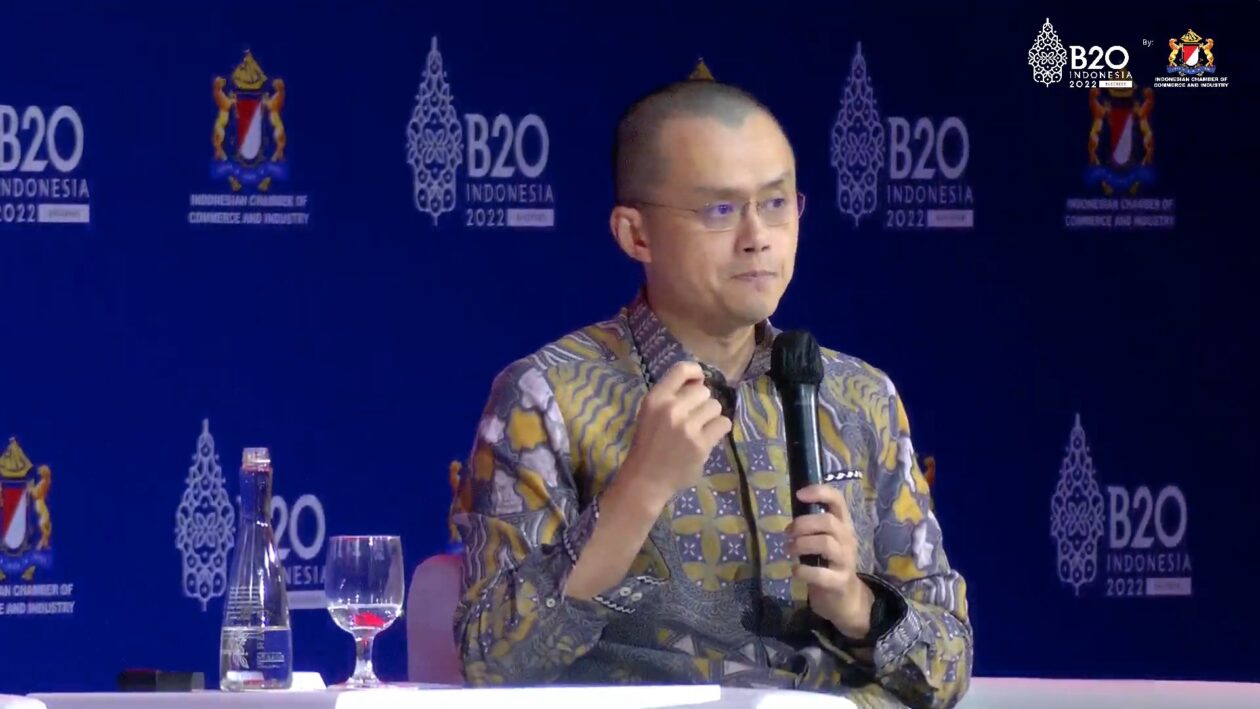Binance plans to help set up a global cryptocurrency association to “set very strong standards for the industry,” the company’s founder and Chief Executive Officer Changpeng Zhao said on Monday in Indonesia at the B20 Summit, a conference running alongside the G20 summit that starts Tuesday.
In a separate tweet on Monday, Zhao, who runs the world’s largest cryptocurrency exchange, said he plans to establish an industry recovery fund to aid projects that are short of cash, but have a strong business model. He urged projects to contact Binance Labs, the exchange’s incubator and investment unit.
Zhao said the industry collectively has a role in protecting consumers, amid the collapse of the FTX.com crypto exchange, which filed for Chapter 11 bankruptcy in the U.S. on Friday.
“Regulators absolutely have a role, but it’s also not 100% of that responsibility,” Zhao said.
“If a guy who’s very good at lying and very good at, you know, just pretending to be what he’s not, and somebody wants to violate the law, the law is not going to prevent that. The law can help to reduce that.”
Scrutinize reserves
Zhao said regulators need to look at crypto exchanges beyond the traditional methods to regulate banks.
“Crypto exchanges operate very, very differently from banks,” Zhao said at the B20. “It is very, very normal for a bank to move user assets for investments and try to make returns. In crypto, if you want a crypto exchange that way, it is almost guaranteed to go down.”
See related article: Binance chief says FTX bailout deal ‘didn’t make sense’
In another talk Zhao gave on Friday at a conference in Indonesia, he said that it was important for regulators to expand their range as they tend to just focus on know-your-customer and anti-money laundering.
“You’ve got to focus on the exchange operations,” Zhao said, adding that this would cover areas such as an exchange’s business model and its proof of reserves to show where its user funds are.
“I think we’ll come into a lot more scrutiny on those fronts, but actually that’s good for the industry.”
In terms of taxation, Zhao said at the B20 that if a country imposes heavy taxes on trading it will just drive the business offshore, meaning the country will lose out on potential tax revenue.
“Tax the businesses in the industry. So tax corporate income,” Zhao added. “In order to tax corporate income, you should give licenses more easily. And when you give a license, then you can ask for data… You then have control.”
Rebuilding trust
Zhao said: “There [are] quite a lot of players in our space that try to cut corners to grow quickly, and that actually destroys consumer trust.” He added that Binance aims to be more than just a crypto exchange.
Binance’s 24-hour trading volume exceeded US$15.9 billion at 4 p.m. in Hong Kong, compared to US$1.8 billion at Coinbase, US$727.4 million at KuCoin and US$580 million at Kraken, according to data from CoinMarketCap, which is owned by Binance.
“Most people know Binance as a cryptocurrency exchange, but we actually have much more than that,” Zhao said. “Binance is more like an ecosystem of tools that we want to help people to access crypto with.”
He said Binance has invested in companies of all sorts across the industry.
“We try to help grow other exchanges, other DeFi (decentralized finance) protocols, [and] other wallets, etc.,” Zhao said. “We invest in other centralized exchanges, too, to try to help them grow. We also invest in a local exchange here in Indonesia.”
He added: “We don’t really control how big we are or how small we are. We just try to provide the best service – the most secure, the most reliable service to our users.”
See related article: Binance’s pending acquisition of FTX may attract attention of antitrust regulators

